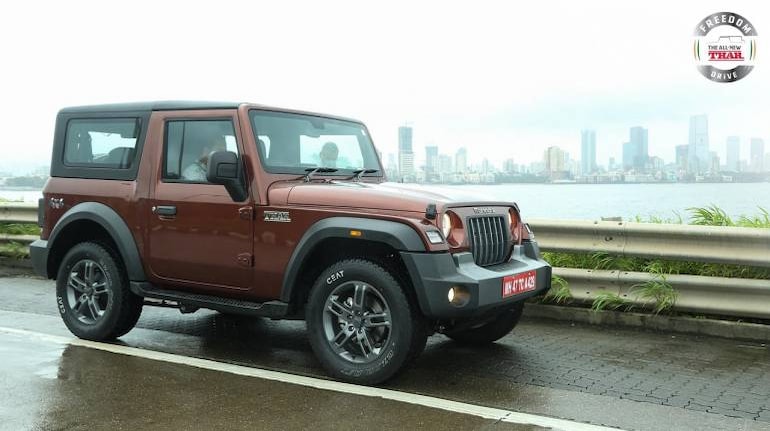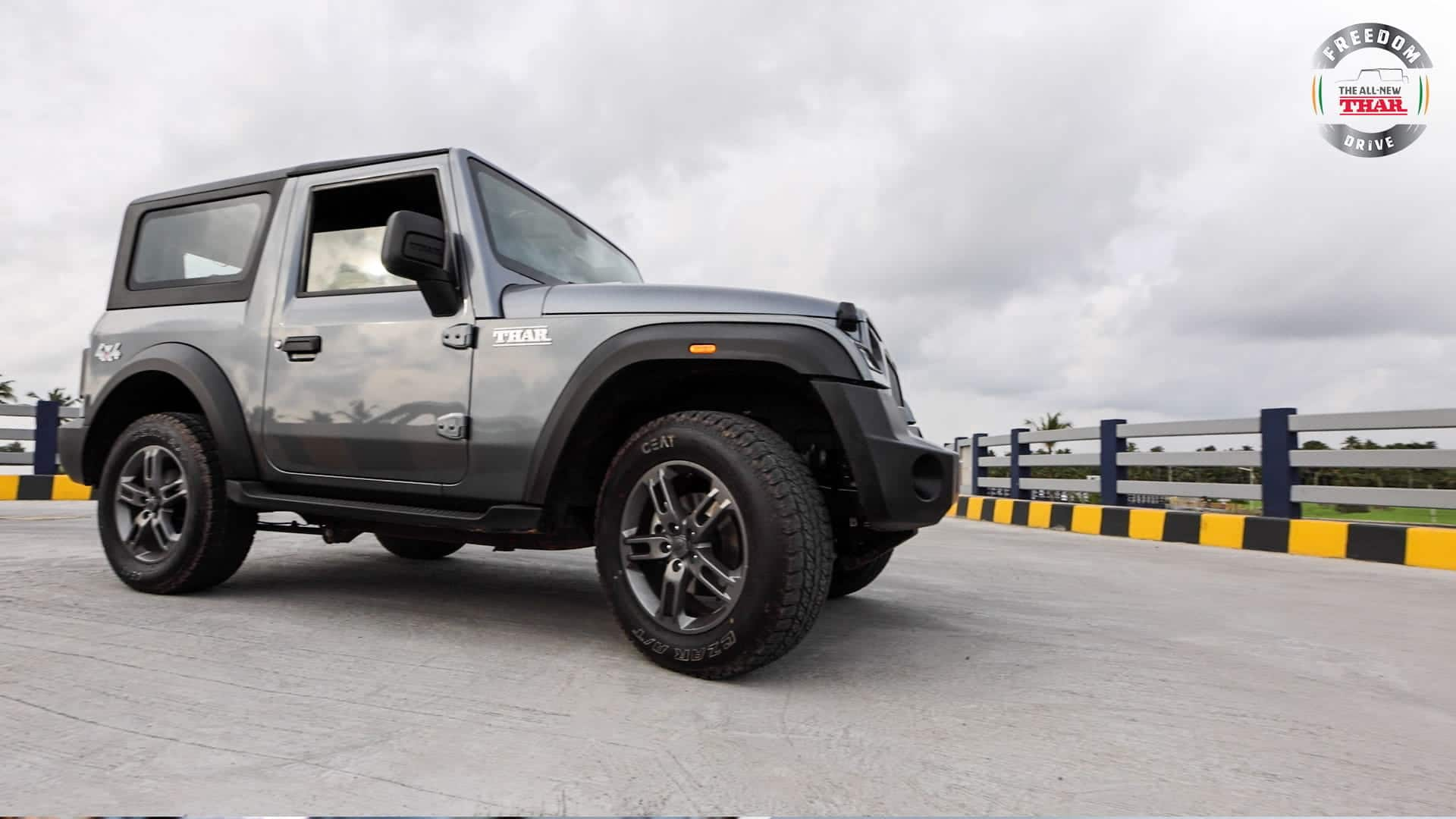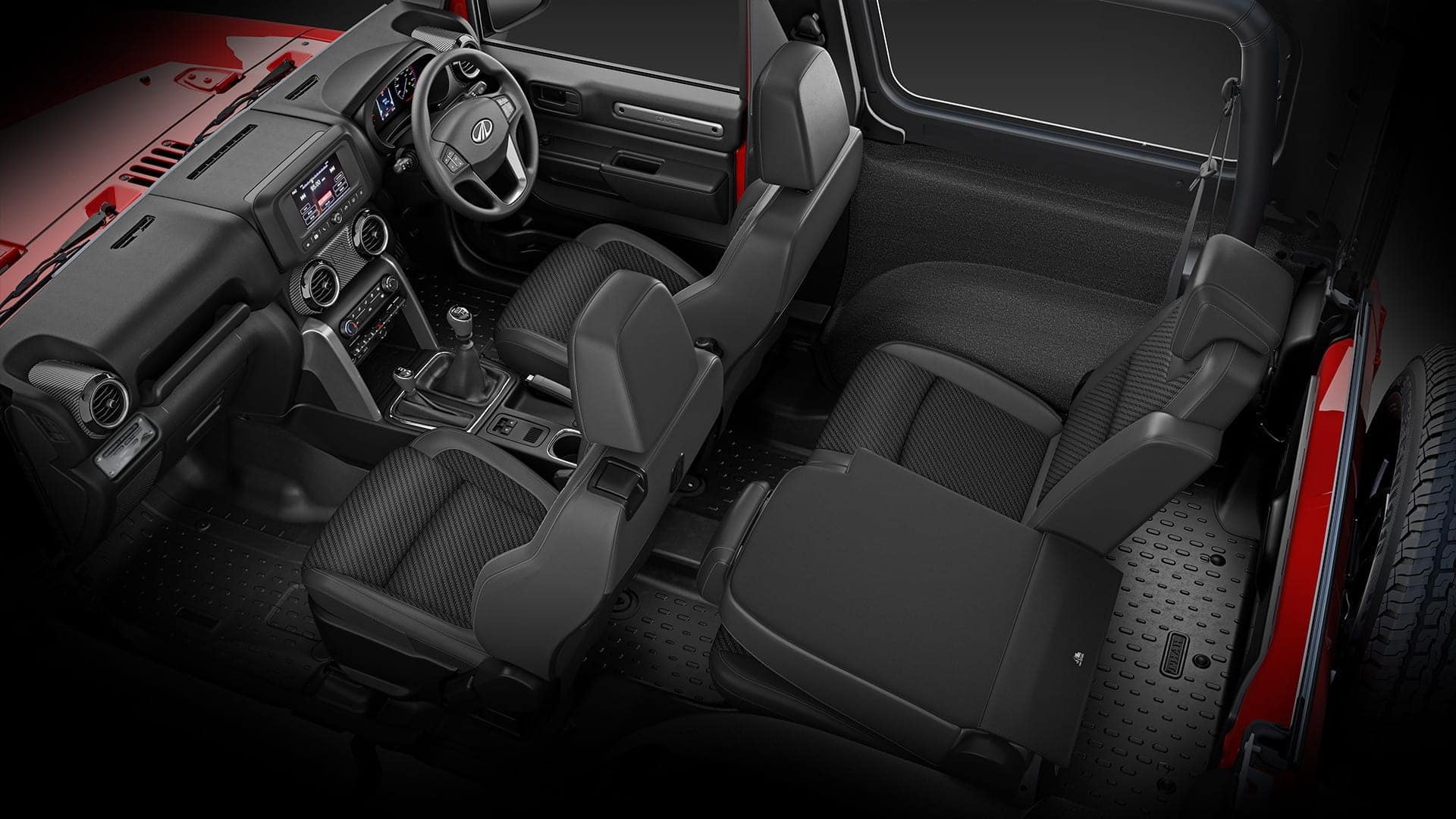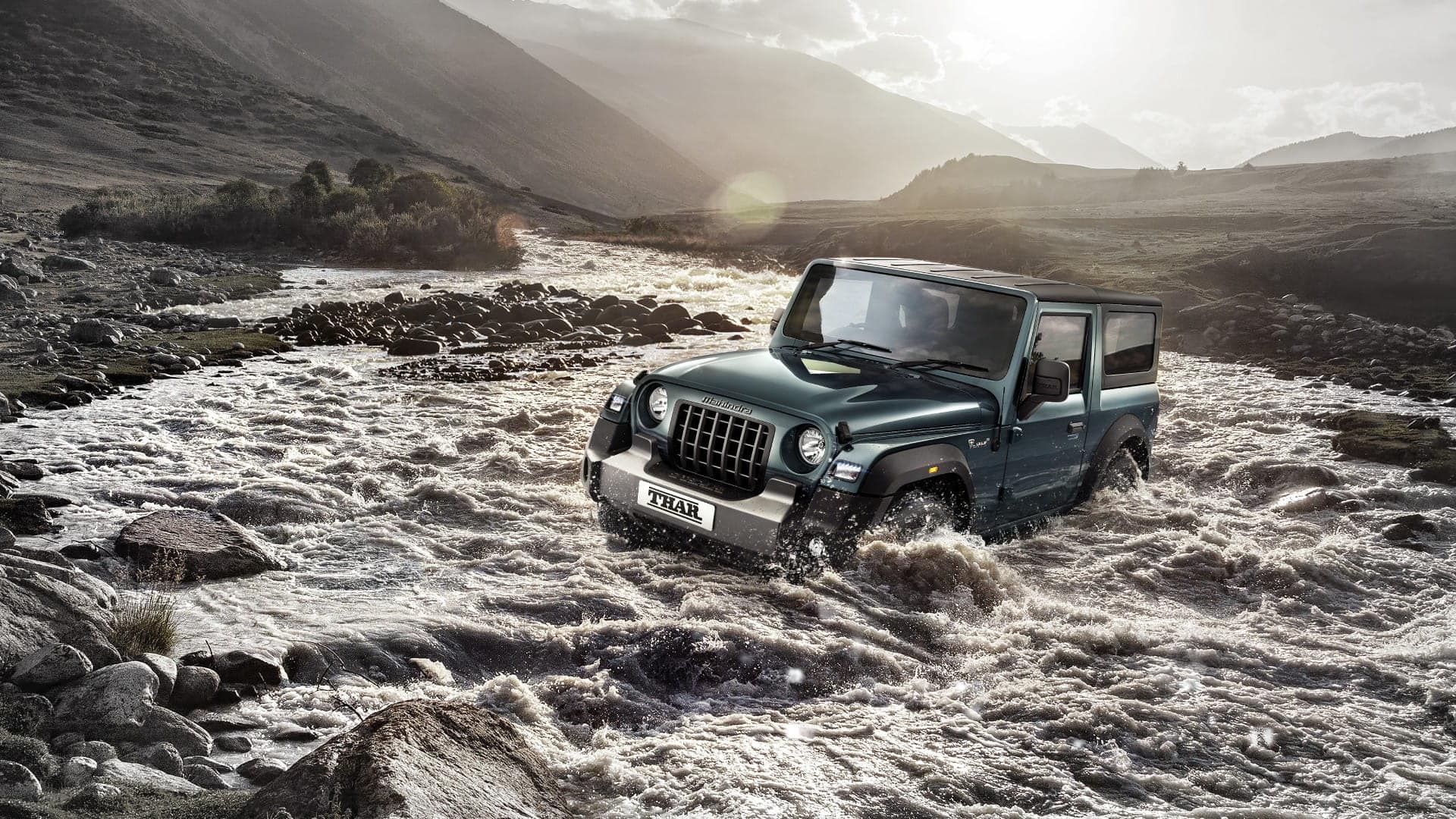



The new Mahindra Thar can cause plenty of rubbernecking on a crowded street. Few cars elicit the sort of response the Thar does because few cars appear so desirable and attainable at the same time. I can tell you that the new Thar’s bonnet has been raised according to the latest pedestrian safety norms, I can tell you that it’s iconic, although derivative design lies enhanced, with a more muscular shoulder line, wider track and a fuller, fleshed-out form. But that’s obvious for all to see.
What isn’t obvious, is that this entirely home-grown off-roader, recently scored a solid four stars in adult and child safety Global NCAP’s latest round of crash tests. So as stylish as the new Thar is, it’s the substance underneath it that’ll cement its position as an icon of Indian motoring, in the coming years.
What’s new?The spotlight might be on the new 2.0-litre, mStallion, turbo-petrol, but the 2.2-litre, mHawk diesel (featured here) is no slouch either. Over the years, the engine, which also does duty in the XUV500, has proven to be a thorough and reliable workhorse.
Thanks to BS6 regulations it’s now noticeably smoother, with a bulk of its 300Nm of torque coming through at 1500rpm. Sure, it makes less torque than the petrol, but for Mahindra traditionalists, the diesel’s gruff characteristics will find greater appeal. Particularly when paired to a manual gearbox.
 Entirely home-grown off-roader, recently scored a solid four stars in adult and child safety Global NCAP’s latest round of crash tests
Entirely home-grown off-roader, recently scored a solid four stars in adult and child safety Global NCAP’s latest round of crash testsThe 6-speed manual is accompanied by a low-ratio transfer case, allowing you to switch to four-wheel drive. Both engines are entirely made of aluminium, and the Thar now features far greater levels of insulation than its predecessor.
This, however, doesn’t begin to encapsulate just how different a breed of off-roader, the new Thar is from its predecessor. Mahindra had the daunting task of creating a successor that was as rugged as the outgoing model, but not necessarily as agrarian in its appeal. It had to have the right entry and departure angles, and work as a bonafide boulder basher, but more importantly, it had to work as an everyday car.
Apart from the boisterous presence the previous-gen Thar gained for its driver, there wasn’t much else it brought to the tarmac. It felt crude, poorly-finished and rudimentary. And while those qualities certainly helped enhance its blue-collar appeal, they weren’t going to win any accolades when passed on to its successor.
The InteriorsI’ve driven the first-gen Thar extensively. I’ve driven it on dunes, on mountaintops, on the vast, unending acreage of Jaisalmer and on its (alleged) namesake – the Thar desert. Never once did I come away underwhelmed. Even with a considerable amount of miles under its belt, there was a mechanical purity to the Thar. A rawness that connected you to a simpler time in motoring. It offered a very connected and mechanical experience, the likes of which only classic cars can replicate today.
The new Thar feels very different. It’s interiors are closer to the Jeep Wrangler’s in that they offer the same soft-touch neo-retro vibe which feels so different and so much more refined than the previous one, you’d be forgiven in thinking that at least three generations lay between this one and its predecessor.
 Interiors are closer to the Jeep Wrangler’s in that they offer the same soft-touch neo-retro vibe
Interiors are closer to the Jeep Wrangler’s in that they offer the same soft-touch neo-retro vibeThere’s a 7-inch touchscreen unit mounted on the dash, and it’s equipped with Apple CarPlay and Android Auto functionality. The whole cabin is waterproof, in case you want to take that hard or soft top off. There are steering mounted controls, an “Adventure Statistics” display mode on the centre console – this Thar is a very different animal from its predecessor.
 The whole cabin is waterproof, in case you want to take that hard or soft top offCan it dance?
The whole cabin is waterproof, in case you want to take that hard or soft top offCan it dance?A Thar, no matter how sophisticated and refined, is no good, unless it can be driven with total reckless abandon. The Thar continues to feature body-on-frame construction, making it perfectly suited for some solid off-roading. At 226mm, it sits a little lower than its predecessor but it is still pretty hardcore. The transfer case splits torque 50:50, and with its short wheelbase, the Thar continues to be incredible value-for-money, as far as ruts and boulders are concerned. There’s even hill-hold, hill-descent control and a tyre pressure and tyre articulation indicator. All this for an ex-showroom price of Rs 13.25 lakh.
 River crossing
River crossingIt’s the on-road mannerisms that truly astound you. The mHawk’s unmistakable whistling sound can still be faintly heard, thankfully, but otherwise it’s hard to tell that you’re driving a diesel. The suspension is very softly sprung, ideal for bogs and marshlands not for smooth tarmac. But given that smooth tarmac is a rarity in the Indian context, it actually cushions pretty much every impact quite judiciously. It’s just that sometimes you have to roll with them. Perils of a ladder-on-frame chassis.
Yes, the rear seats aren’t easy to access, but I like my off-roaders to have three-doors and not five, although a five-door Thar will soon be on its way.
 Under a waterfallVerdict
Under a waterfallVerdictWith a four star safety rating, vastly improved on-road drivability and incredible tech features the Mahindra Thar has taken an enormous leap in evolution. Given its popularity it stands as a beacon of what Mahindra, and as a corollary Indian car manufacturing can achieve when the mandate is precise and clear: give the people a car that’s affordable, safe, desirable and practical. I want one.
Discover the latest Business News, Sensex, and Nifty updates. Obtain Personal Finance insights, tax queries, and expert opinions on Moneycontrol or download the Moneycontrol App to stay updated!
Find the best of Al News in one place, specially curated for you every weekend.
Stay on top of the latest tech trends and biggest startup news.